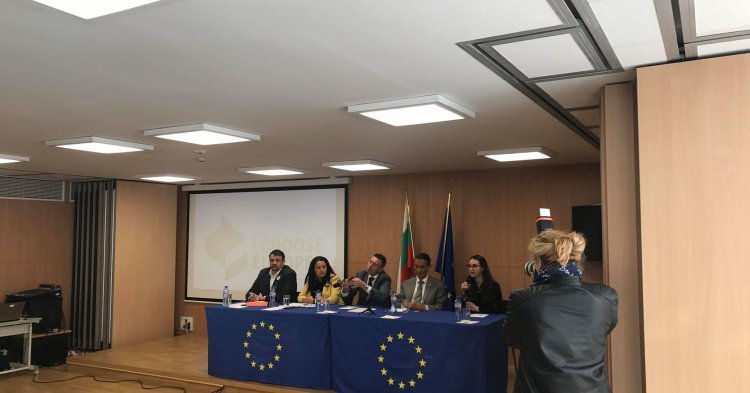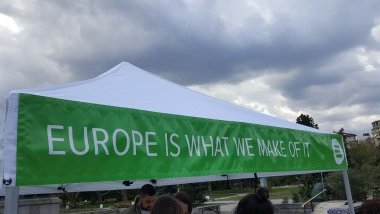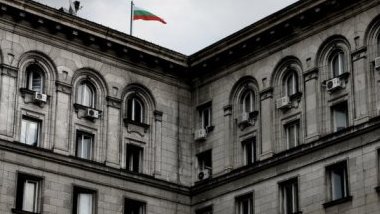The panellists were the former minister for the Bulgarian EU presidency from the governing centre-right GERB party Liliana Pavlova, Bulgaria’s former UN representative Stefan Tafrov who now represents the Democratic Bulgaria alliance that also sits with the EPP, and Volt Bulgaria’s leader Nastimir Ananiev.
Same themes, no matter where
Through debating and deciding matters together in the EU, European countries are truly developing a common destiny. In election debates, no matter if you’re in Sofia, Paris or Helsinki, the same thoughts are presented nearly verbatim.
Stefan Tafrov spoke about the need to strengthen the powers of the European Parliament, and about the lack of media coverage for European affairs. Nastimir Ananiev lamented the low voting turnout in European elections. Among other themes, Liliana Pavlova raised nationalism, the so-called migrant crisis, and Europe’s economic situation as key challenges for the elections. The commitment to a more democratic Europe that delivers better for its citizens is shared among pro-EU politicians across the continent.
Commitment to Europe
Perhaps the most memorable moment of the panel debate was when an audience member started a question by referring to Bulgarians’ limited commitment to the EU. Though the exact source wasn’t clear, it seems that reference was made to the 2018 Eurobarometer according to which 51% of Bulgarians felt that they were citizens of the EU, the lowest figure in any EU member state.
The panellists all reacted immediately, saying in unison that Bulgarians are committed to the EU. They countered with other Eurobarometer data, saying that Bulgarians have a high level of trust in the EU. Indeed, in 2017 Bulgarians had the sixth-highest level of trust, with 59% saying that they tend to trust the European Union. Statistics aside, the key takeaway from the exchange was that the speakers were all prepared to defend Bulgaria’s place in Europe.
Challenges still remain. Addressing a question on brain drain, Stefan Tafrov pointed to problems with rule of law as one reason why people are leaving Bulgaria, beside pure economic questions. Concerning another difficult topic, namely the anti-domestic violence Istanbul Convention which was ruled unconstitutional in the Bulgarian courts, only Volt’s Nastimir Ananiev expressed readiness for the debate on the convention itself to continue in Bulgaria.
Nonetheless, Bulgaria is looking towards further integration into the core of the EU. Last summer, the road map for Bulgaria to join the Eurozone was approved, and the country is looking to join the banking union by this summer. Nastimir Ananiev pointed out that prices are expected to increase in Bulgaria once it adopts the euro, but he still said he believes and hopes Bulgaria will be in the Eurozone in two or three years.
Interview with Nastimir Ananiev: Campaigning for Volt in a new member state
Volt is a pan-European party that originated in Western Europe. When asked how it is to campaign for the party in a new EU member state, the Volt Bulgaria leader Nastimir Ananiev highlighted Volt’s ambition to reduce inequalities in living standards across Europe. He says that Volt seeks to ensure that “everybody can live a normal, dignified life” across Europe, including by working on underdeveloped regions. Though Volt’s electoral programme is pan-European, some national modifications are made to address local specificities. Nonetheless, Ananiev says that the vision of the party across Europe is in the same direction.
Volt seeks to create a group of its own in the European Parliament, which requires 25 seats from 7 countries. If the party fails at the task, Ananiev would prefer Volt representatives to sit as independents. Alternatively, Volt entertains the idea of bringing in MEPs from other parties: “If we don’t have enough, we can try to attract people with our vision and policies. But it should be our focus to have our own group.”
At the 2019 elections, Bulgaria sends 17 members to the European Parliament. The official campaign period for the elections in Bulgaria begins on 26 April.




Follow the comments: |
|
